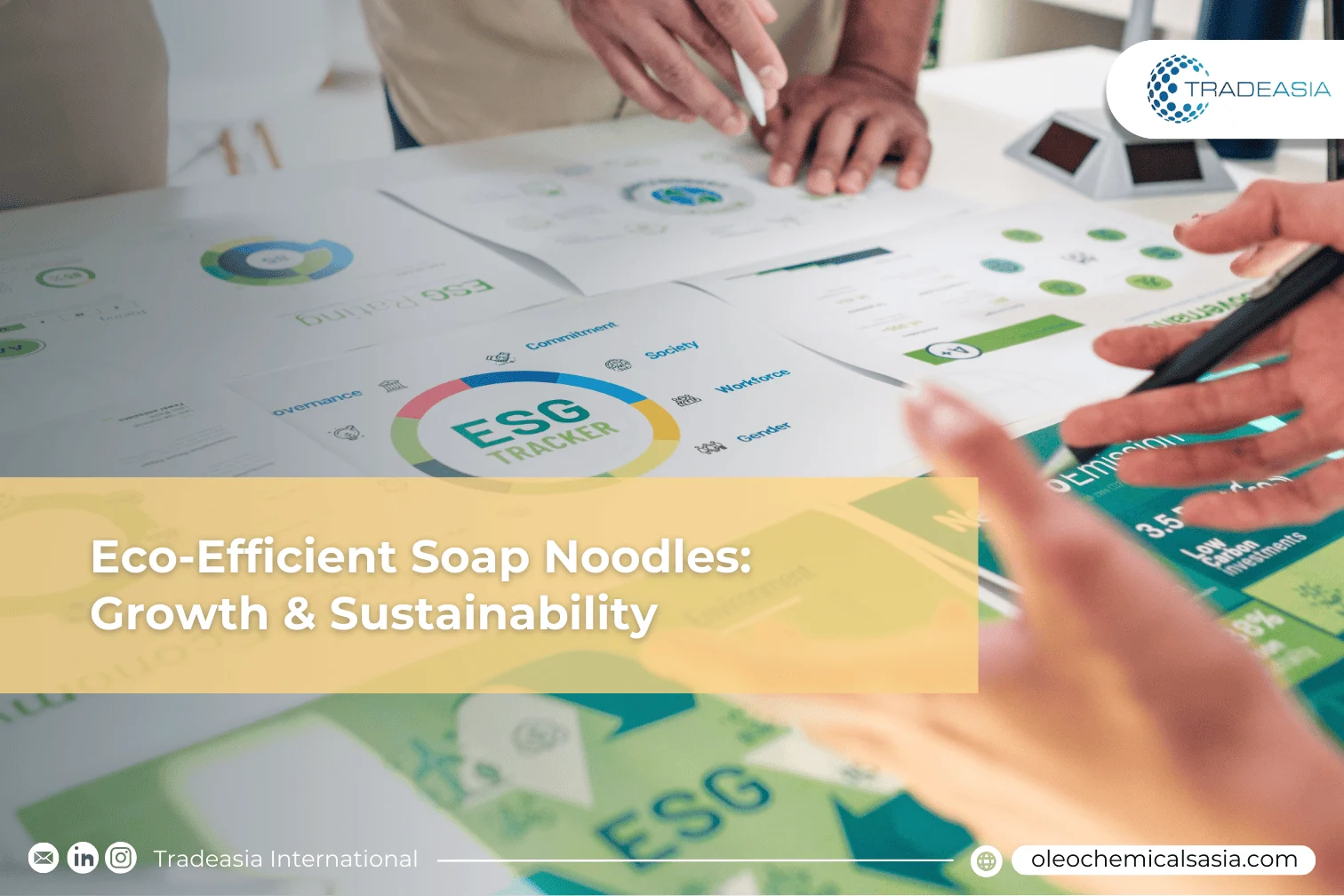Market Expansion Backed by Strong Fundamentals
The global soap noodles market is projected to reach USD 1.2–1.7 billion by 2025, supported by a steady 3.1% to 3.8% CAGR. Long-term projections suggest the sector could grow to USD 1.6–2.5 billion by 2030–2035, reflecting both resilient demand and expanding applications in personal and household care. Growth is fueled by rising hygiene awareness, rapid urbanization, and the increasing preference for sustainable products. Within this landscape, Asia-Pacific remains the largest and fastest-growing region, benefitting from abundant palm oil availability and a massive consumer base.
For businesses navigating this growth curve, having reliable partners across the supply chain is crucial. Tradeasia International, a leading distributor of palm-based oleochemicals, plays an important role in enabling manufacturers to access high-quality raw materials while ensuring global supply consistency. As the company highlights, “responsible palm oil sourcing is not just a compliance measure, but a strategic step towards sustainable profitability.” This alignment with sustainability expectations positions Tradeasia as a trusted bridge between producers and end markets.
Vegetable oil-based soap noodles, which account for around 55% of total demand, continue to dominate over tallow-based grades. Their appeal lies not only in being plant-based but also in aligning with consumer demand for biodegradable and chemical-free alternatives. Saponification, the primary production process, has also evolved, with energy-efficient methods that reduce carbon footprints while maintaining product quality. These operational efficiencies are becoming a critical differentiator for companies aiming to balance cost competitiveness with environmental responsibility.
Sustainability as a Profitability Driver
Sustainability has moved from being a trend to a decisive factor shaping market strategies. ESG compliance, traceability, and deforestation-free sourcing are now central to how the soap noodles industry operates. Regulatory frameworks, such as the EU Deforestation Regulation, coupled with consumer activism, are compelling manufacturers to invest in transparent and responsible sourcing. Companies that commit to credible certification schemes and traceable palm oil supply chains can not only mitigate reputational risks but also secure premium pricing and stronger brand loyalty.
Asia-Pacific’s leadership in this area is no coincidence. Palm oil production in the region is increasingly managed under stringent sustainability protocols, which strengthen both environmental stewardship and social equity. By integrating advanced saponification processes with responsibly sourced vegetable oils, manufacturers are setting new benchmarks for efficiency and accountability. The outcome is a sector that is not only expanding in value but also aligning itself with the long-term expectations of global stakeholders.
In essence, the soap noodles industry is entering a new era where profitability and sustainability converge. Companies that adapt early, embrace eco-efficient technologies, and partner with trusted distributors like Tradeasia International are poised to capture significant advantages in the fast-growing 2025 market and beyond.
Sources:
-
Oleochemicals Asia - https://www.oleochemicalsasia.com/
-
Soap Noodles Market Report - Future Market Insights - https://www.futuremarketinsights.com/reports/soap-noodles-market
-
Soap Noodles Market Size, Share & Growth Report - https://www.metatechinsights.com/industry-insights/soap-noodles-market-3436

Leave a Comment